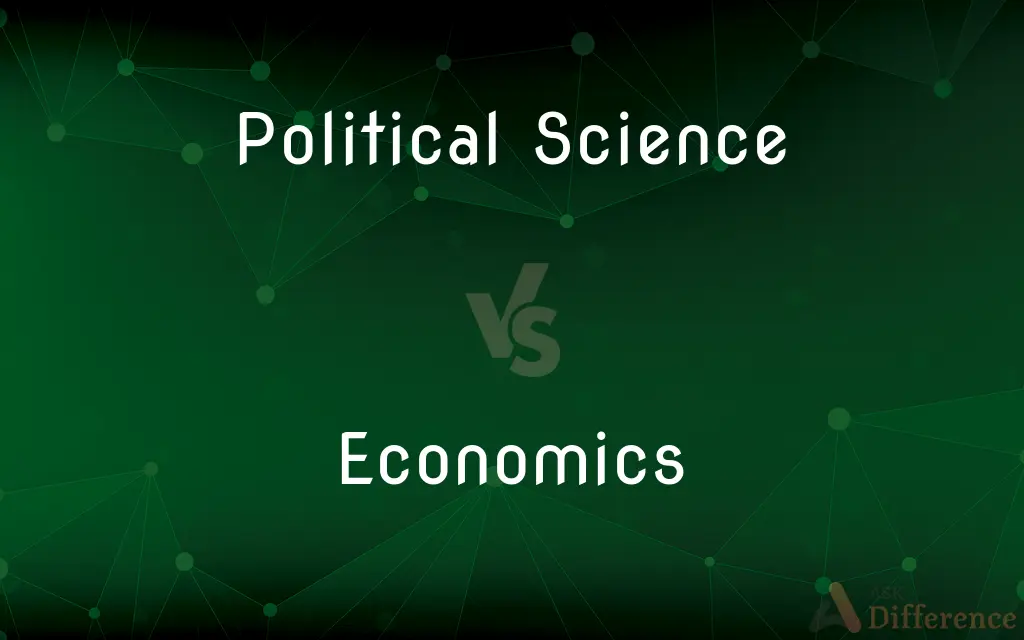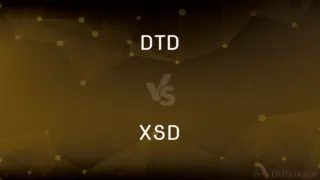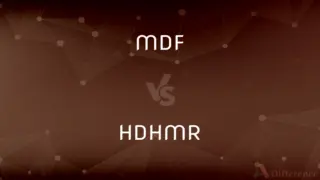Political Science vs. Economics — What's the Difference?
By Tayyaba Rehman — Published on January 22, 2024
Political Science is the study of government, politics, and policies. Economics is the study of production, distribution, and consumption of goods and services.

Difference Between Political Science and Economics
Table of Contents
ADVERTISEMENT
Key Differences
Political Science is the academic study of governments, political processes, public policies, and political behavior. Economics, on the other hand, focuses on the allocation of resources, the functioning of economies, and the principles governing production and consumption.
Political Science delves into the theoretical underpinnings of political systems and explores the dynamics of power and governance. Economics deals with economic theories, market dynamics, and financial models, exploring how economic systems operate.
In Political Science, analysis often includes the study of political institutions, electoral systems, and the role of public opinion. Economics emphasizes on understanding how choices are made regarding resource allocation and the impact of these choices on societies.
Political Science examines the impact of political decisions and policies on society. Economics focuses more on the economic outcomes of policy decisions, market behavior, and financial trends.
While Political Science and Economics often overlap, especially in areas like public policy, they maintain distinct methodologies and theoretical frameworks.
ADVERTISEMENT
Comparison Chart
Primary Focus
Governments, politics, policies
Production, distribution, consumption of goods and services
Key Areas of Study
Political systems, power dynamics, governance
Economic theories, market dynamics, financial models
Analysis
Political institutions, behavior, public opinion
Resource allocation, economic outcomes
Outcomes
Impact of political decisions on society
Economic impacts of decisions, market trends
Methodology
Qualitative and quantitative political analysis
Economic modeling, statistical analysis
Compare with Definitions
Political Science
Involves the study of power and governance.
Political science classes often discuss the dynamics of political power.
Economics
Study of how societies use resources.
Economics helps in understanding resource allocation.
Political Science
Analyzes political behavior and public policies.
In political science, electoral systems are a key area of study.
Economics
Analyzes production, distribution, and consumption.
Economics courses cover market supply and demand theories.
Political Science
Study of government systems and political activity.
He majored in political science to understand government operations.
Economics
Involves economic theories and models.
In economics, the study of fiscal policy is crucial.
Political Science
Examines the role and impact of public opinion.
Political science researches how public opinion influences policy.
Economics
Examines financial trends and market behavior.
Economics is key to understanding stock market dynamics.
Political Science
Focuses on political institutions and processes.
Political science investigates how political institutions function.
Economics
Focuses on economic outcomes and choices.
Economics evaluates the impact of consumer choices.
Economics
(used with a sing. verb) The social science that deals with the production, distribution, and consumption of goods and services and with the theory and management of economies or economic systems.
Economics
(used with a sing. or pl. verb) Economic matters, especially relevant financial considerations
"Economics are slowly killing the family farm" (Christian Science Monitor).
Economics
(social sciences) The study of resource allocation, distribution and consumption; of capital and investment; and of management of the factors of production.
Mary studied economics for 5 years before going into banking.
Economics
The science of household affairs, or of domestic management.
Economics
Political economy; the science of the utilities or the useful application of wealth or material resources; the study of the production, distribution, and consumption of goods and services of a nation or region, and its effect on the wealth of a country. See Political economy, under Political.
Economics
The branch of social science that deals with the production and distribution and consumption of goods and services and their management
Common Curiosities
Can Political Science and Economics overlap in study?
Yes, they often overlap in areas like public policy and economic policies.
Do Economics focus more on mathematical models?
Yes, Economics heavily relies on mathematical and statistical models to analyze economic trends.
What is the main difference between Political Science and Economics?
Political Science focuses on government and politics, while Economics deals with the economy and financial systems.
Are political decisions studied in Economics?
Yes, especially when those decisions impact economic policies and outcomes.
Is Political Science more qualitative than Economics?
Political Science often includes more qualitative analysis, but it also uses quantitative methods.
Can a Political Science student benefit from studying Economics?
Absolutely, understanding economic principles can enhance a political scientist's analysis of policy and governance.
Can Economic theories apply to political analysis?
Yes, economic theories can help in understanding the financial implications of political decisions.
Is the study of public opinion important in Political Science?
Yes, public opinion is crucial in shaping political processes and policies.
Is it common for universities to offer combined degrees in Political Science and Economics?
Many universities offer combined or interdisciplinary degrees in these fields due to their interconnected nature.
Does Economics solely focus on finance and markets?
While finance and markets are key areas, Economics also studies broader aspects like resource allocation and consumer behavior.
How does Political Science contribute to understanding governance?
It provides insights into how governments function, the impact of political decisions, and the dynamics of power.
How do Political Science and Economics contribute to societal development?
They offer critical insights into effective governance and economic strategies that drive societal progress.
Why is the study of market behavior important in Economics?
Market behavior analysis helps in predicting economic trends and making informed financial decisions.
How do Political Science and Economics influence public policy?
They provide frameworks for understanding the implications of policy decisions from political and economic perspectives.
Are there careers combining Political Science and Economics?
Yes, careers in public policy, governmental consulting, and economic analysis often combine both fields.
Share Your Discovery

Previous Comparison
DTD vs. XSD
Next Comparison
MDF vs. HDHMRAuthor Spotlight
Written by
Tayyaba RehmanTayyaba Rehman is a distinguished writer, currently serving as a primary contributor to askdifference.com. As a researcher in semantics and etymology, Tayyaba's passion for the complexity of languages and their distinctions has found a perfect home on the platform. Tayyaba delves into the intricacies of language, distinguishing between commonly confused words and phrases, thereby providing clarity for readers worldwide.
















































